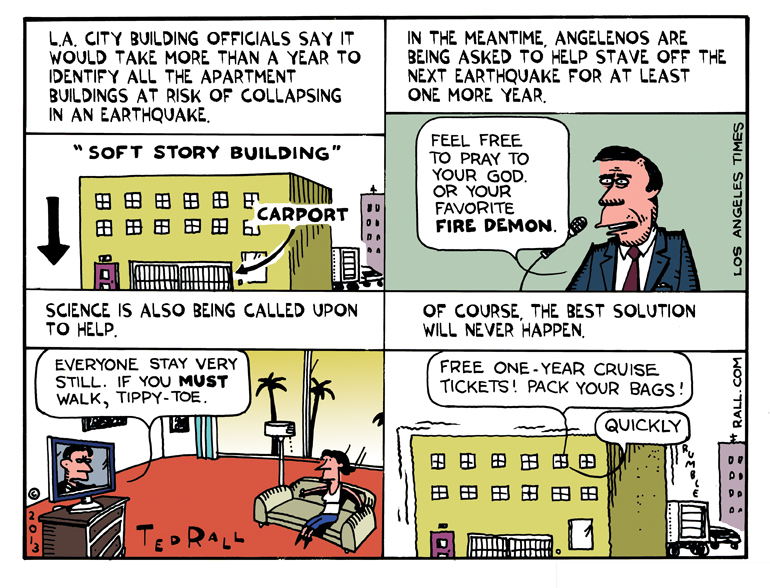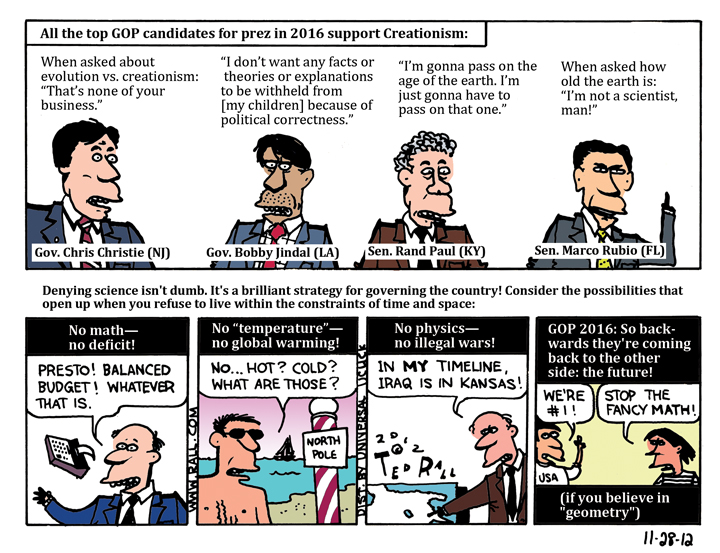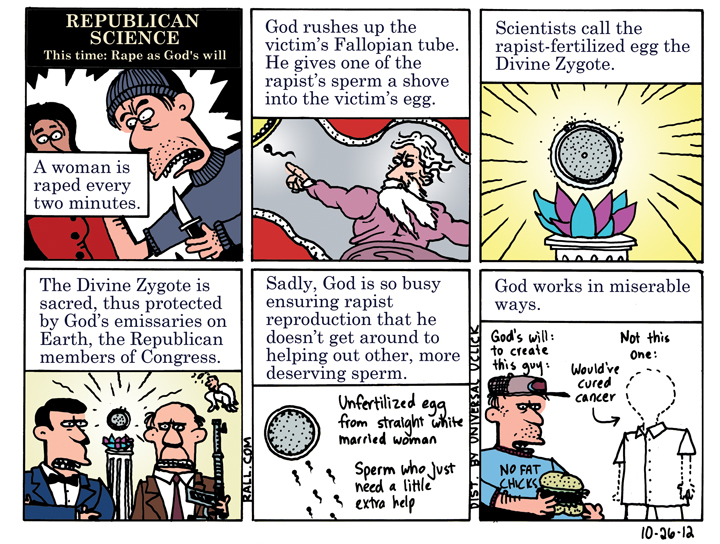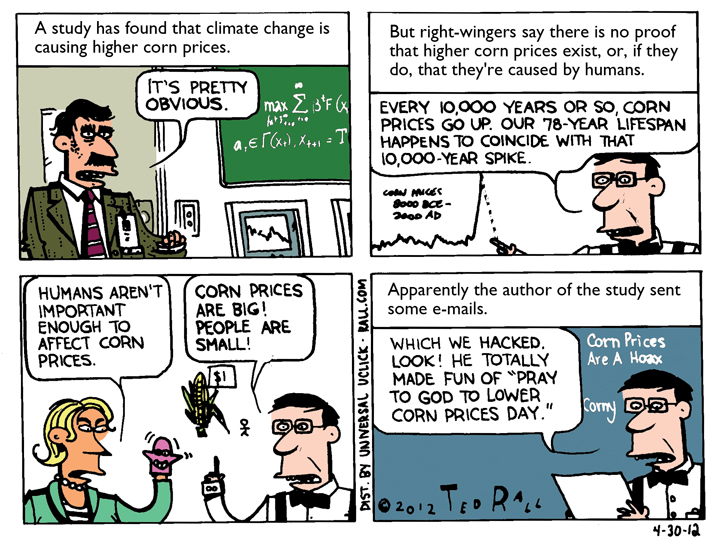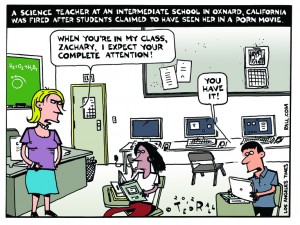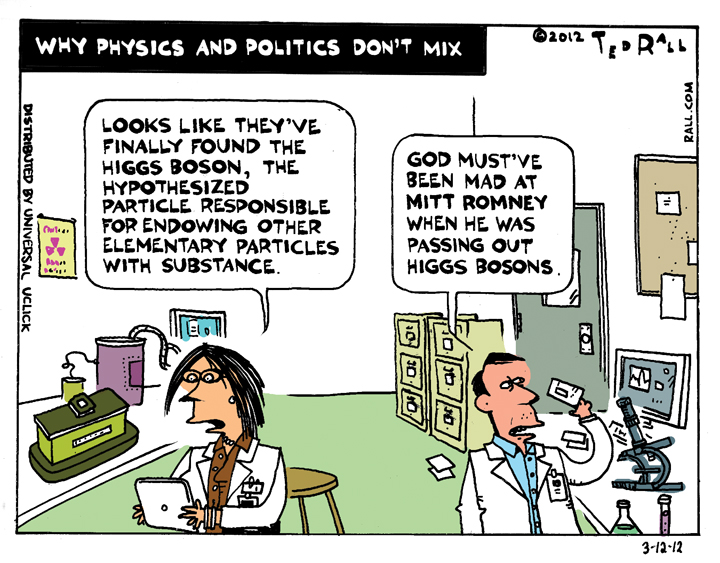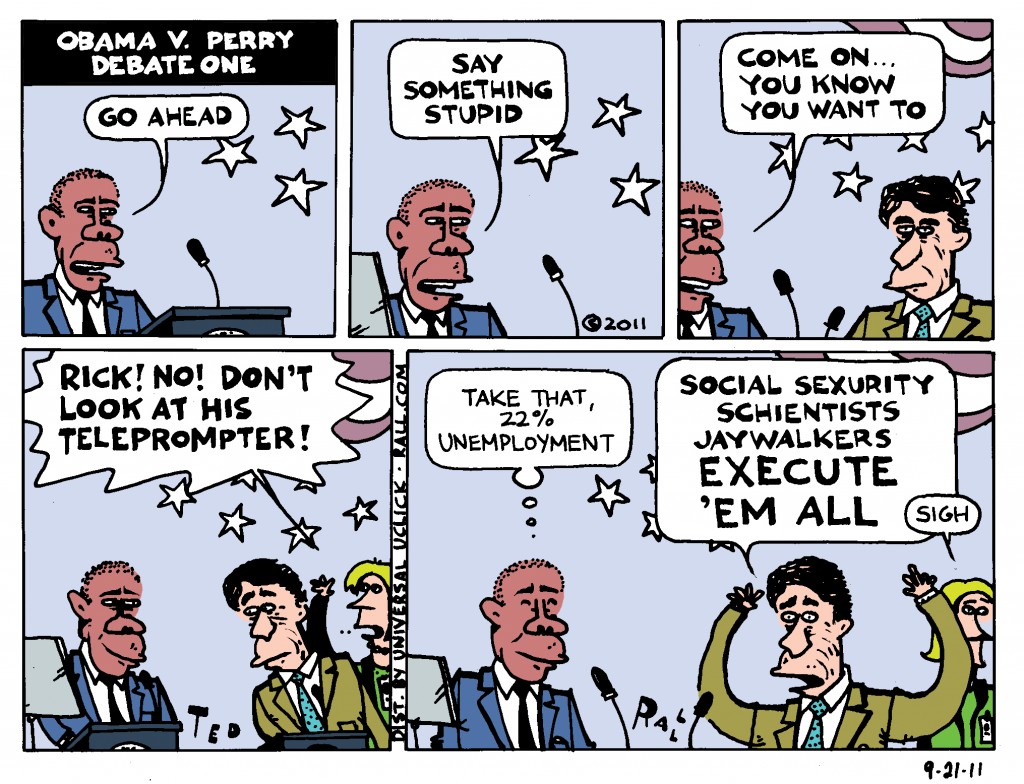
Sexing Up Science Won’t Solve a Dearth of STEM Majors
According to a survey, nearly 90% of 16- and 17-year-olds have no interest in a STEM (science/technology/engineering/math) career.
The climate is crashing, the NSA is tracking our porn, and the 99% haven’t gotten a raise in decades, but the party organ of America’s ruling class is truly, awfully worried about our imminent STEMlessness. A lot.
“The number of students who want to pursue engineering or computer science jobs is actually falling, precipitously, at just the moment when the need for those workers is soaring,” writes The Editorial Board of The New York Times, which is composed of editors no one has heard of, yet whose opinions we are all supposed to care about. “Within five years, there will be 2.4 million STEM job openings,” write The Editors.
Who, in the future, will program the great fleets of killer drones? Who will pilot them? It would suck to lose that business to the Chinese.
Whenever the question of Why No One Wants to Study Engineering comes up, the media always comes back with the same answer: conning convincing kids that STEM stuff isn’t boring.
“Most schools continue to teach math and science in an off-putting way that appeals only to the most fervent students,” the Times editors complain. Sex up the sciences — that’s the ticket!
Texas Instruments (they’re still around?) has hired neuroscientist/”Big Bang Theory” actress Mayim Bialik as a “STEM education brand ambassador” to sing the praises of partial differential equations using framing that the Kids of Today/Worker Bees of Tomorrow can relate to. “Who doesn’t know something about zombies or superheroes?” asks Bialik. “These cultural archetypes can do more than just entertain. Zombies, it turns out, can teach real science and mathematical concepts like exponential growth curves and the intricacies of human anatomy and anatomical degradation. Superheroes can prompt a variety of questions that draw on physics, such as: How does one actually travel faster than the speed of light?”
Is it me, or does this seem a little…forced?
Hey, I’m as geeky as they come. When an engineer who designed famous roller coasters gave a talk at my Ohio high school, I was enthralled. (My classmates, not so much.) But I still didn’t want to study engineering — and it wasn’t because science is boring.
I loved math, chemistry and physics in high school. I studied years ahead. I got perfect grades and tested so well that Columbia’s School of Engineering offered me a full scholarship and a well-paid teachers assistant job.
Still, I didn’t want to go. Not because math and science bored me — to the contrary. I dreaded it because I knew engineering school would probably be a sucky experience and that a career in the sciences would be depressing.
Not that my parents cared what I wanted. They bullied me into going anyway because (a) Columbia gave me the most financial aid of the schools I applied to, and (b) something “practical” like engineering guarantees a steady well-paid job after graduation. (Ha.) So off I went.
Guess what? Engineering school was a sucky experience.
My experience at Columbia highlights reasons — aside from the alleged tedium of math and science — that most young people aren’t interested in the STEM professions:
- When you study math and science, your classmates are boring. At Columbia the engineering majors were politically disengaged, careerist, nose-to-the-grindstone types you’d never find working over the world’s problems at an overnight BS session — much less checking out a punk concert. They were academically smart and deadly dull. After graduation, people similar in personality to your fellow students become your colleagues. Engineering isn’t boring. Engineers are. Working with boring engineers is a bummer.
- STEM majors get much lower grades than liberal arts majors. Tougher grading causes lower GPAs, so dropout and expulsion rates are also much higher: three out of four liberal art majors get a degree, only one out of four STEM majors. During freshman orientation, Columbia’s dean of students told us that 75% of us would drop out or get expelled. I wondered why I was there. (After three years, I was expelled with a 2.4 GPA. Which I worked hard for.) Why take out massive student loans for a one-in-four chance at a degree? Though some studies deny the difference, 60% of freshman engineering students are gone, dropped out or transferred to the liberal arts, by the end of their freshman year. These kids aren’t stupid or lazy — they were smart and studious enough to get admitted in the first place.
- Low social status. Guys don’t make passes at girls who wear safety glasses; girls suddenly remember something they forgot in the ladies room when you tell them you’re an electrical engineer. Because (see above) engineers are boring. Also: in America’s anti-intellectual culture, it’s not cool or hip or prestigious to be a scientist.
- STEM employment is sporadic (they say “cyclical”). What’s the point of playing it safe when it’s not, well, safe? The STEM major you pick as a freshman may easily be obsolete by the time you hit the senior year job fair. Even if not, it’s extremely unlikely your chosen scientific field will provide steady employment for years to come. Currently, as the Powers That Be say they need STEMmers, unemployment is sky high among STEM professionals. As of 2009, nearly 9% of electrical engineers were jobless. Oh, and it turns out that STEM majors actually don’t earn more than their liberal arts counterparts.
“Indeed, science and engineering careers in the U.S. appear to be relatively unattractive” compared with other career paths, Michael Teitelbaum of the Alfred P. Sloan Foundation in New York, which funds basic scientific, economic and civic research, testified to Congress in 2007.
High-school students know what’s up. They hear from older siblings how hard it is to graduate from engineering school. They watch their friends’ parents lose their jobs from supposedly “safe” STEM outfits. They’re not going to change their minds until reality improves.
Some fixes:
- De-ghettoize STEM majors within colleges and universities. Require STEM majors to take lots of liberal arts classes — it’s not like a math major shouldn’t study Spanish literature — and require liberal arts majors to take more math and science. Mix up the student bodies. Think about someone like Steve Jobs, whose design sense came from his love of art and calligraphy. The divide between English and physics majors is artificial and outdated. Crosspollinate.
- Put an end to the grading disparity between STEM majors and liberal arts. It’s unfair and it’s stupid. At Harvard, the average grade is an “A-“, and why not? The average Harvard student is intelligent and hardworking — and so is the average Columbia engineering student. Harvard’s softer grading regime hasn’t cost the school any reputation points.
- If America wants STEM majors from America, it ought to stop importing them from overseas. “When the companies say they can’t hire anyone [for STEM jobs], they mean that they can’t hire anyone at the wage they want to pay,” Jennifer Hunt, a Rutgers University labor economist, said in 2012. So they outsource STEM jobs overseas and game the work visa program to import cheaper foreign scientists. “Tech companies that import temporary workers, mainly recent graduates from India, commonly discard more expensive, experienced employees in their late 30s or early 40s, often forcing them, as Ron Hira and other labor-force researchers note, to train their replacements as they exit,” reports the Columbia Journalism Review. Until STEM unemployment among Americans is 0%, Congress ought to get rid of the visa program.
- Even cultural perceptions can be changed. If President Obama and other members of the political class are serious about promoting STEM careers, they could start featuring our best mathematicians and chemists at events like the State of the Union Address rather than the usual parade of military veterans. The Soviet Union pimped its scientific minds big time; kids who admired these intellectual heroes followed in their footsteps.
Math and science aren’t boring. But asking people to dedicate their lives to careers that won’t pay off is dumb.
(Support independent journalism and political commentary. Subscribe to Ted Rall at Beacon.)
COPYRIGHT 2013 TED RALL

